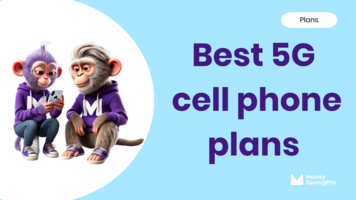
Highlights
- The end of the Affordable Connectivity Program (ACP) threatens to disconnect 23 million internet users, with senior Americans among the hardest hit.
- ACP has been instrumental in providing discounted internet services to 'low-income' and 'fixed-income' households, especially retired or semi-retired Americans.
- As the program winds down, stakeholders are calling for urgent action to find sustainable alternatives.
As the federal funding for the Affordable Connectivity Program (ACP) dries up, a looming crisis threatens to widen the digital divide.
Many retired or semi-retired Americans have come to rely heavily on the program for affordable internet access.
Read more: ACP funding crisis impacts 23 million low-income families
The ACP, which has offered up to $30 monthly discounts on internet services ($75 in tribal areas), has been a lifeline for many, not just older adults.
With adorable, reliable internet, people can access telemedicine services, stay in touch with family, and manage their personal affairs online.
For many seniors, the ACP has been about more than just connectivity; it's been a crucial tool for living independently.
Read more: Post-ACP world: Why affordable internet options now?
As ACP funding ends, the consequences could be dire for seniors who are already dealing with fixed incomes and rising healthcare costs.
The digital divide could deepen further, leaving many older Americans without the means to afford basic internet services.
Community organizations and advocacy groups are ramping up their efforts to call for renewed support or alternative programs that can continue to offer this essential service.
In light of the ACP's critical role, there have been bipartisan calls for action to either extend the program's funding or create new solutions that ensure continued support for vulnerable groups, including seniors. Some states and local communities are considering stepping in to fill the gap, but comprehensive federal action is deemed necessary for a long-term solution.
My take: What can fixed-income households do?
I fear that the end of federal funding for affordable internet will inevitably widen the digital divide, hitting seniors hard.
Their increasing reliance on the internet for health, safety, and staying connected highlights the urgent need for new solutions.
I have come up with some ways to save money in other areas of your budget to help offset this issue.
Read more: Best prepaid cell phone plans
I still believe it's essential that policymakers, community leaders, and businesses work together to create sustainable options that continue to support our seniors and other populations most in need.
Keeping people online is about more than just internet access; it's about respecting people's dignity, independence, and quality of life.
Stay updated on this topic and discover more about its impact at MoneySavingPro.com.
Follow us on Facebook, X, and TikTok for the latest news, sage advice, and money-saving tips.







